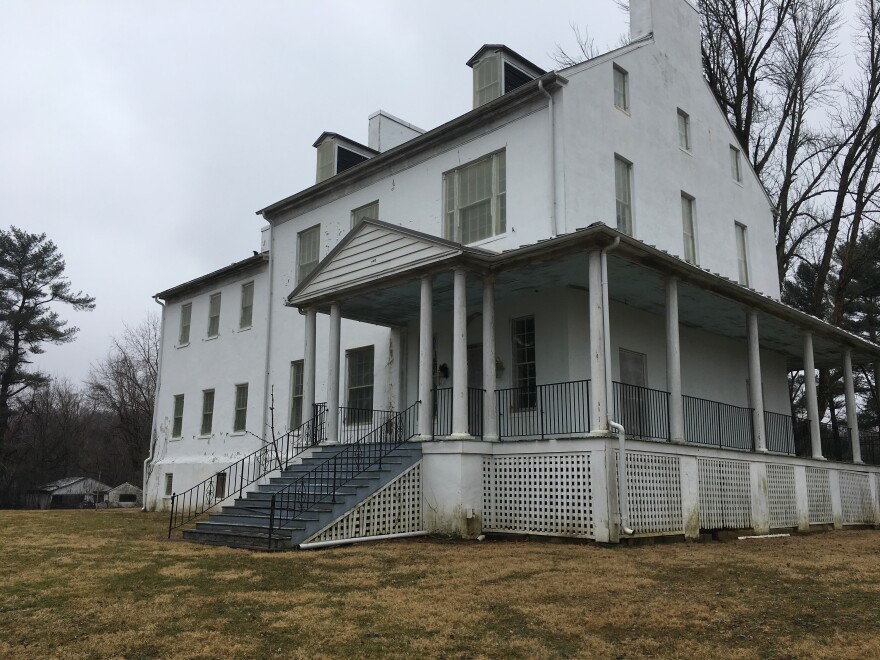
When you first see Perry Hall Mansion, you notice something odd. Sean Kief, who is on the board of Historic Perry Hall Mansion, points it out.
“You’re looking at basically half a house,” Kief said.
More than 200 years after the founding of a new American church within its halls, the bare bones of the Baltimore County mansion remains.
But there are questions about its future
The original house, built in 1775, was the center of a large plantation It was destroyed in 1839 by a fire, but most of the original foundation survived.
“So really what you have is an 1840 house that’s almost intact, built on the foundation of a 1775 house,” Kief said.
With one wing missing, perhaps because that part of the foundation was destroyed.
But decades before that fire, in 1784, Perry Hall Mansion played host to a gathering that would lead to the birth of the American Methodist Church.
The American Revolution was over. John Wesley, who was in England, wanted to do something for the former colonists who had been cut off from the Church of England. The Bishops there pretty much said, “Not our problem.”
So Wesley, the founder of the Methodist movement, sent Thomas Coke to America. He got together with, among others, a preacher named Francis Asbury. They called a conference in Baltimore to transform what was then a movement, into a new church.
“So then they had to organize this conference. And that’s where Perry Hall comes in,” according to Robert Shindle, the archivist for the Baltimore-Washington Conference of the United Methodist Church.
Asbury, Coke and others met at Perry Hall to plan the Christmas Conference of 1784, which took place at Lovely Lane Chapel, on what is now Redwood Street downtown. That church is long gone, but its descendent, Lovely Lane United Methodist, is at 2200 Saint Paul Street.
And there’s a one-room museum at the church with artifacts from the earliest days, including Asbury’s ordination certificate.
“It’s signed by Thomas Coke,” Shindle said. “So these are the folks that met at Perry Hall.”
They met there because the lady of the house, Prudence Gough, was a staunch Methodist.
Asbury became the founding bishop of the Methodist Church in America at the Christmas Conference.
But there’s more to the mansion than Methodism.
Kief gave a tour of the house, starting in the basement within the 1770s brick foundation, which is a good 12 feet high.
“Now this is what kept me up at nights,” Kief said.
He said he has first-hand accounts from people who remember seeing chains on the wall, left over from slavery. His grandmother for one, who was born in the house, told him the story when he was a child.
“And they do remember a post going right here, went all the way to the top of the ceiling that had shackles that hung from it,” Kief said.
Ascending steps to the first floor and into the mid 19th century, you enter what was once a grand home, now vacant and in disrepair. Kief estimates it would take $1 million or more to bring Perry Hall back but he adds it’s all cosmetic. The structure is sound.
So what now? Baltimore County owns it. Spokesman T.J. Smith said the county wants a solution that works for both the mansion and neighbors who live close by. Kief agrees.
“This isn’t an establishment for like weddings or things like that,” Kief said. “Something that’s going to cause a ruckus to the community.”
Shindle says the church considers the mansion a historic site but will not help financially.
“That sort of heritage preservation, I guess in the great scheme of church work, isn’t considered a high priority,” Shindle said.
Kief said he would like the county to give his organization a lease so they can run the mansion and raise money to bring it back for whatever its future may hold.
In 2017, Kief brought in an architectual historian to examine the house and find clues to its age and history.
















